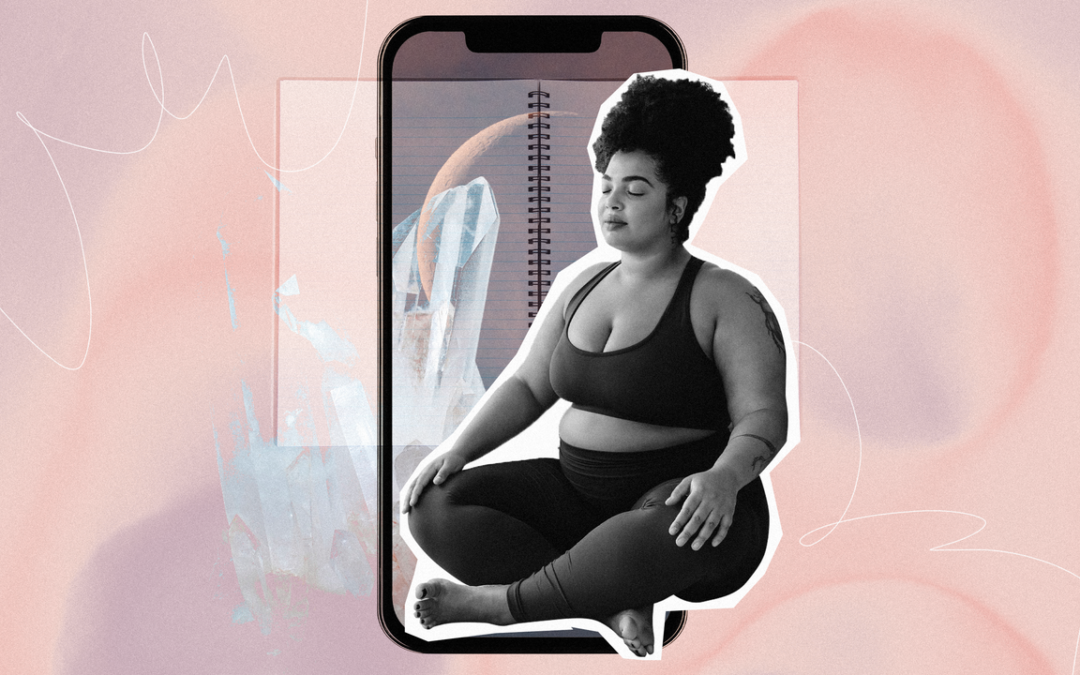“If you look at slave tales, sayings, and poems, they often talk about flying back to Africa,” Lomax says, adding that this was an envisionment of their freedom. “They knew they weren’t birds, they knew that they could not fly, but they knew that they had to tap into something more powerful than what was in front of them, what was material, in order to gain their freedom,” she says. That was definitely a form of manifestation when they envisioned the freedom that they desired.” Fast forward to the 1990s during the South African transition from apartheid to majority rule, and ubuntu became a major philosophical movement popularized by the teachings of Nobel Peace Prize winner Desmond Tutu.
But in the early 2000s, manifestation took on a new form as a “new-age” philosophy thanks to the rise of self-help books, such as the documentary-turned-book The Secret by Rhonda Byrne. The rules of manifestation in Byrne’s book are surprisingly simple: ask, believe, and receive, which is based on the quote from the Bible’s book of Matthew: “And all things, whatsoever ye shall ask in prayer, believing, ye shall receive.”
These self-help guides became the new root of the watered-down, more condensed versions of manifestation we see and hear across TikTok today, which focus less on the collective good and more on individual matters like financial gain, relationship success, or career goals.
So, does manifestation work?
The idea that asking the universe for a specific outcome and receiving it sounds outlandish and a tad woo-woo, all the experts we tapped agree that manifestation does have its benefits. “I think you could replace the word ‘manifestation’ with ‘intention,’ right? It’s not accidental luck or success,” says Dr. Selling. “It happens because you’re in the right place, because you’re open to it, because you want it, because it connects with who you see yourself to be.”
The scientific proof that manifestation benefits mental health is so compelling that Cambridge, Massachusetts-based neuroscientist Tara Swart Bieber, MD, wrote a book on it. The Source, published in 2019, delves into the neurological science and benefits of manifestation practices based on Dr. Bieber’s findings.“The cognitive science, both in psychology and neuroscience, that underpin these ancient practices shows us that if we combine vision with action, we have the agency to live our best life rather than feeling at the mercy of external circumstances outside of our control,” she says.
So, can manifestation actually impact our brains? According to Dr. Bieber, absolutely. “Manifestation practices impact mental health mostly through the motivation, reward, and movement pathways of our brains, which are correlated with dopamine and the mood regions which are governed by serotonin,” Dr. Bieber says. ”When we manifest good relationships, professional accomplishments, health, home life, et cetera, we produce the momentum to stay hopeful about life, reduce levels of disappointment and this maintains good mood levels and mental health.”
What are some tips for practicing manifestation properly?
Manifestation practices can take infinite forms, whether that be journaling or vision boarding or simply meditating on your life goals. There isn’t necessarily one streamlined way to practice manifestation, but our experts have a few tips.
1. Go beyond writing it down.
We said it before, and we’ll say it again: simply wishing something into existence isn’t going to make it happen. “That’s just a piece of the process,” says Dr. Selling. “You could write the same sentence a million times, if you’re not putting in the energy or the effort [to make it come true], it’s all luck.”

